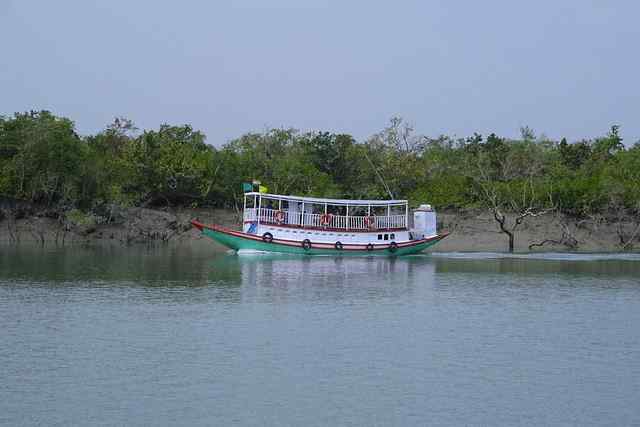Ecotourism consists of two words, “eco”, meaning environment, nature, or surrounding, and “tourism”, which stands for travel or vacation.
This word looks simple but has a more in-depth meaning that all of us need to understand.
Ecotourism is also known as sustainable, responsible, nature or green tourism in a broader way having a sole objective to:
- Reduce the impact of traditional tourism on the environment
- Preserve the biodiversity of that area
- Create a positive impact on ecosystems and local communities.
- Conserve the cultural heritage
- Enhance tourist’s satisfaction
However, there is a thin line of distinction between sustainable and ecotourism where the latter involves environmentally responsible travel to untouched natural regions only.
It is worth noting that all forms of tourism can be sustainable, but not all forms of tourism can be ecotourism.
This article discusses the definition, meaning, type, and benefits of ecotourism in India.
What is the need for eco-tourism?

With the dawn of the 21st century, the world has witnessed unprecedented yet tremendous developments in economic and technological fields.
Coupled with improvements in modes of communication, transportation, and people having extra resources to spend, traveling for fun has become a common practice.
People started traveling extensively and frequently, influencing the environment in multiple ways;
- Vehicles cause air pollution, thus affecting the ecosystem to the point where it requires an immediate response.
- Tourists are unaware of the cultural sensitivities of the places they visit. Due to cultural shock, unknowingly, they hurt local residents, resulting in unjust and biased perceptions about those communities.
- Tourism-induced pollution has become a burning issue at places of great tourist spots. Excessive tourism caused heavy alteration in the natural appearances of some of these places.
- Transformation of tourism into a large industry with its sole focus on profit generation rather than being sustainable.
According to data by United Nations World Tourism Organization (UNWTO), the tourism industry is responsible for contributing 5% of global carbon dioxide emissions, where transportation alone accounts for 75% & accommodation causes 21% of C02 emissions.
To fight these challenges, scholars started to think of ways to make tourism eco-friendly while addressing cultural sensitivities, the wellbeing of the inhabitants, and tourist satisfaction.
Searching for the solution, they came up with the novel idea of ‘Ecotourism.’
What is ecotourism?
Ecotourism is a novel approach for the tourism industry that involves traveling to natural locations without disturbing the ecosystem integrity and creating opportunities for economic benefits & wellbeing for the local communities.
According to the International Ecotourism Society (TIES), ecotourism definition goes like this;
Responsible travel to natural areas that conserves the environment, sustains the wellbeing of the local people, and involves interpretation and education. (TIES, 2015)
Hence, environment-friendly tourism provides a chance to relax, to forget worldly woes in the company of mother nature, and to bolster efforts to save nature.
Conventional Tourism Vs Eco-Tourism

Apart from the intent and the underlying mission of nature conservation, traditional tourism and ecotourism also vary in other characteristics.
Conventional tourism focuses on providing luxurious stays even in far-flung areas that come with the cost of increased pollution and disturbing life in those areas.
On the other hand, environment-friendly tourism mainly focuses on engaging people in natural activities like natural homestays, hiking, and sightseeing.
It takes utmost care not to affect the natural habitat of the area.
Moreover, ecotourism discourages fossil fuel burning, contrary to traditional tourism that relies on many travel agents to make it happen.
Let us now discuss various other measures that show the differences between conventional and sustainable tourism.
| Characteristics | Conventional Tourism | Ecotourism |
| Nature of attractions | General & specifically built for tourism purpose | Natural & Authentic |
| Volume | A large group of people | A small group of people |
| Seasons | Season specific | No specific seasons |
| Focusses on | Tourist satisfaction only | Tourist satisfaction, Environment protection & Local communities wellbeing |
| Length of stay | Short | Long |
| Architecture | International | Local |
| Earning | High | Low to Moderate |
| Tourist’s role | Prevailing | Supplementary |
| Regulation | Free | Intervening |
| Objective | Profit & growth | Community wellbeing & preservation of culture |
| Facility design | Design, construct and operate facilities that can impact the environment | Design, construct and operate low-impact facilities |
Benefits / Importance of Ecotourism

Let us now discuss the main benefits of green tourism.
| Benefits | Description |
| Bio-Diversity Protection | Conservation of natural habitats, flora, and fauna |
| Effective Resource Management | Minimization of Non-renewable resources |
| Environment Protection | Reduce pollution and waste generation |
| Involvement of local communities | Local development & community wellbeing |
| Protection of local culture & traditions | Promotion and Preservation of traditions, heritage, architecture, and cultural uniqueness |
| Physical Integrity | Maintaining landscape quality |
| Tourist satisfaction | A safe and enriching experience for tourists |
Ecotourism in India
If one is looking for adventure but, at the same time, cares about cultural exchange, environment conservation, and preservation of biodiversity, then ecotourism is the ultimate answer.
In India, sustainable tourism means visiting natural panoramic locations comprised of wildlife sanctuaries, biological parks, zoological sites, tea & spice plantations, and lush green forests.
Back in 2019, during my Goa visit, we opted for a cruising tour by Konkan explorers, who are the national winner of outlook India responsible tourism awards 2018.
They are one of the best operators promoting ecotourism and local culture, and we need more like them in India.
Examples of Ecotourism Destinations in India

Presently, there are some attractive locations across India where one can avoid city life’s hustle and help heal this planet.
Following are some of the best eco-friendly destinations one can visit;
| Eco-Tourism Destination | Must see/do |
| Sunderban, West Bengal | World’s largest natural delta, Royal Bengal Tiger, Unique mangrove forest |
| Kerala | Periyar national park, Several Plant species, Nilgiri Mountain range, Tropical Dense forests, Sandy beaches, Thenmala Ecotourism Project-Idukki, Tea Plantations, backwaters |
| Karnataka | Nagarhole national park, mountain ranges in Coorg, waterfalls |
| Jim Corbett National Park, Uttarkhand | Rich flora and fauna, Himalayan foothills, multiple species of trees, birds, and wild animals |
| Andaman & Nicobar | Diverse marine life, Pristine beaches, Jungle trails, mangroves |
| Sikkim | Kanchenjunga range, Trekking, Biosphere reserves |
| Goa | Spice gardens, Beaches, Wildlife sanctuaries, water sports |
| Rajasthan | Bharatpur Bird Sanctuary, Aravalli mountain ranges in Mount Abu, Keoladeo National Park, Thar deserts |
Activities / Types of Ecotourism in India

With its rich flora and fauna, India has always been a favorite eco spot for timeless vacations.
Here you can indulge yourself in the following eco-friendly activities;
- Trekking /Hiking
- Cycling
- Snorkeling/Scuba Diving
- Bird watching
- Sailing & Kayaking
- Ziplining
- Hot air ballooning
- Paragliding
- River rafting
- Bungee Jumping
- Nature photography
- Cultural study
- Nature Trails
- Fishing
- Camping
- Camel /Horse safari
- Village homestay
- Agrotourism
Eco Recourses of India
The rich geographical diversity of India has provided multiple ecosystems acting as key resources for green tourism.
Some of them are:
- Mountains
- Forests
- Deserts
- Mangroves
- Coral Reefs
- Sea, lake & rivers
- Caves & Caverns
- Wetlands
- Flora & Fauna
In the end…
Although it is a fact that ecotourism has presented a sustainable and viable alternative to conventional tourism, there is still a long way to go.
Responsible tourism is not about the means of transportation used or the places visited; it is a complete lifestyle choice while traveling to a certain place.
Presently it is marred with several challenges ranging from;
- lack of institutional support,
- unwillingness from inhabitants to cut off their earnings during the transition
- lack of awareness regarding environmental issues
- insufficient supply of organic produce
- fewer jobs to incorporate the people employed in traditional tourism
- inadequate infrastructure.
These challenges are formidable but not impossible. By taking concrete steps in the right direction and adopting eco-friendly policies, these can be resolved.
Promoting eco-friendly travel not only helps to preserve the natural ecosystem and improves the long-term economic prospects of the locality.
Remember, eco-friendly tourism is the only way to satisfy our urge to travel & explore without hurting the beloved planet earth.
Nice article about our Mother Nature, definitely a great initiative to keep focusing on eco tourism rather traditional tourism.apart from environmental issues , water pollution is still a major problem in our country.